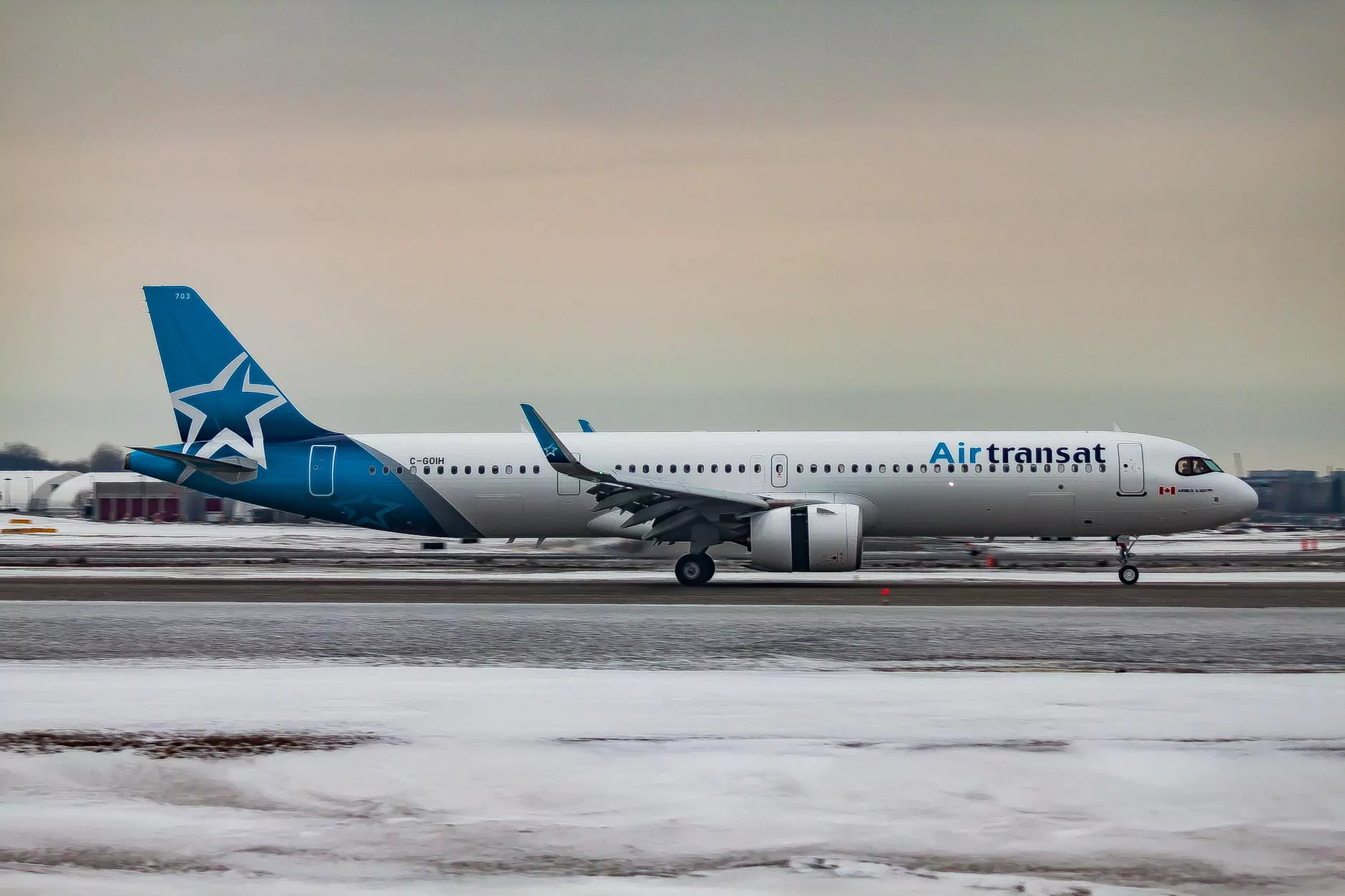Comprehensive Guide to Air Freight Estimate: Unlocking Opportunities in Global Shipping

In the dynamic world of international commerce, understanding the intricacies of air freight estimate is essential for businesses seeking efficient, cost-effective, and reliable shipping solutions. From shipping centers and transportation networks to airport operations, every component plays a critical role in ensuring swift delivery and customer satisfaction.
Understanding the Importance of Accurate Air Freight Estimates in Global Business
Businesses engaged in cross-border trading, e-commerce, and supply chain management recognize that precise air freight estimate is a cornerstone of operational success. Accurate invoicing, cost management, and timely delivery depend on comprehensive freight calculations that consider weight, volume, routes, and various ancillary fees.
In an era where customers expect rapid delivery and transparency, companies must employ advanced tools and strategies to generate reliable estimates that avoid unexpected costs and delays, thus maintaining competitive advantage.
The Role of Shipping Centers in Optimizing Air Freight Processes
Shipping centers serve as vital hubs where goods are consolidated, processed, and prepared for air transport. Their strategic location near airports facilitates seamless logistics, reducing transit times and costs.
Effective shipping centers integrate sophisticated inventory management, customs clearance, and packaging solutions to streamline operations. When planning for an ambitious air freight estimate, it's crucial to account for the capabilities and throughput of these centers, as they influence scheduling and pricing.
Advanced facilities equipped with technology like warehouse management systems (WMS) and real-time tracking enable businesses to get more accurate cost projections and optimize freight schedules.
Transportation Networks and Their Impact on Air Freight Estimates
The efficiency of overall transportation networks directly affects air freight cost and reliability. From trucking and rail to last-mile delivery specialists, each segment contributes to the total shipping expense and transit time.
- Ground Transportation: Delivery to and from airports must be planned carefully. Traffic conditions, vehicle types, and routing impact transit costs.
- Rail and Coastal Shipping: Intermodal options, especially for heavy or bulk goods, can influence overall freight estimates when combined with air logistics.
- Courier and Express Services: Premium options might significantly elevate costs but guarantee faster delivery, important for time-sensitive cargo.
Effective coordination among these transportation modes, leveraging insights into traffic patterns and infrastructure, enhances the accuracy of air freight estimate predictions, leading to better planning and customer satisfaction.
Airports as Critical Nodes in the Shipping Network
Airports serve as the logistical heartbeat of air freight operations. Their capacity, infrastructure, and efficiency directly influence the quality of freight estimates. Larger, well-equipped airports offer more frequent flights, better customs processing, and streamlined operations.
Factors impacting air freight estimates related to airport operations include:
- Cargo Handling Capabilities: The speed and volume capacity determine transit times and cost predictions.
- Customs and Security Procedures: Efficient customs clearance minimizes delays and unexpected charges, ensuring accurate cost estimations.
- Flight Frequency and Routes: More direct and frequent flights reduce transit time and costs, impacting freight estimates positively.
Choosing an optimal airport for your freight shipments based on these factors can significantly impact the accuracy of your air freight estimate and overall logistics efficiency.
Strategic Tools and Technologies for Precise Air Freight Estimates
Modern businesses leverage an array of technological solutions to enhance their freight planning accuracy. These include:
- Freight Management Software: Platforms such as Cargobooking.aero integrate booking, tracking, and cost analysis tools that offer real-time air freight estimate calculations.
- Advanced Analytics and AI: Data-driven algorithms analyze historical shipping data, route optimization, and current market rates to generate predictive freight estimates.
- Dynamic Pricing Models: These models account for fluctuating fuel prices, demand spikes, and seasonal variations, providing more adaptable and precise estimates.
Implementing these tools ensures businesses can proactively budget, negotiate rates, and meet customer expectations with greater confidence in their estimates.
How to Obtain Accurate Air Freight Estimate: Step-by-Step Guidance
To secure a reliable air freight estimate, follow these strategic steps:
- Gather Detailed Cargo Information: Determine weight, dimensions, commodity type, and special handling requirements.
- Identify the Destination and Pick-up Locations: Precise locations help in calculating routing options and associated costs.
- Select Preferred Shipping Dates: Weekdays versus weekends, peak season considerations, and other timing factors influence rates.
- Utilize Advanced Booking Platforms: Use services like Cargobooking.aero to request real-time quotes, compare options, and confirm details.
- Consult with Logistics Experts: Engaging specialists can optimize routes, recommend packaging, and refine estimates for better accuracy.
- Incorporate Additional Fees: Understand customs duties, insurance, handling charges, and airport fees to complete the estimate.
The Benefits of Accurate Air Freight Estimates for Businesses
Getting precise air freight estimate yields numerous advantages, including:
- Cost Control: Prevent unforeseen expenses and stay within your logistics budget.
- Operational Efficiency: Streamline planning, scheduling, and resource allocation.
- Enhanced Customer Satisfaction: Provide accurate delivery timelines and pricing transparency.
- Competitive Edge: Offer better quotes, improve pricing strategies, and reduce shipping lead times.
- Risk Mitigation: Early identification of potential delays or costs minimizes supply chain disruptions.
In essence, precise estimation is a strategic tool that empowers businesses to make informed decisions, build trust with clients, and optimize their overall logistics operations.
Future Trends in Air Freight Estimation and Logistics
The logistics industry is rapidly evolving with technological advancements and market changes. Key future trends include:
- Integration of AI and Machine Learning: More accurate prediction models for dynamic market conditions.
- Real-Time Tracking and Visibility: Instant updates on freight status improve estimate reliability and customer communication.
- Automation of Documentation: Seamless handling of customs, compliance, and cargo paperwork reduces delays and costs.
- Green Logistics: Incorporating environmentally sustainable practices influences freight rates and operational strategies.
- Global Standardization: Harmonized rates and procedures across borders facilitate transparent and quick estimates.
Staying ahead in this landscape requires continuous monitoring of innovations and adapting estimation strategies accordingly.
Conclusion: Maximizing Business Potential with Expert Air Freight Estimates
In an interconnected world where speed and cost-efficiency dictate success, mastering the art of obtaining accurate air freight estimate is indispensable for any business involved in logistics and international trade. Leveraging modern technology, strategic planning, and understanding the vital roles of shipping centers, transportation networks, and airports will equip your company with the tools necessary to stay competitive and agile.
Partnering with reliable freight booking platforms such as cargobooking.aero ensures that your freight estimates are not only precise but also adaptable to changing market conditions, giving you a clear advantage in the global marketplace.
Remember, the key to unlocking your logistics potential lies in accurate planning, continuous optimization, and a thorough understanding of all elements influencing air freight estimate. By prioritizing these aspects, your business can achieve greater efficiency, customer satisfaction, and sustained growth in the competitive world of international shipping.









